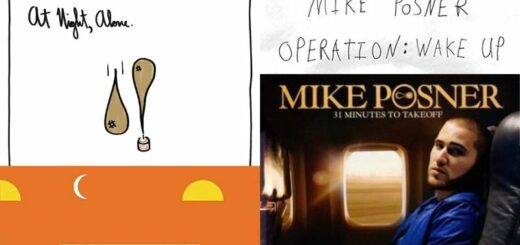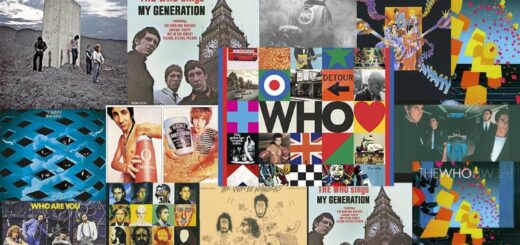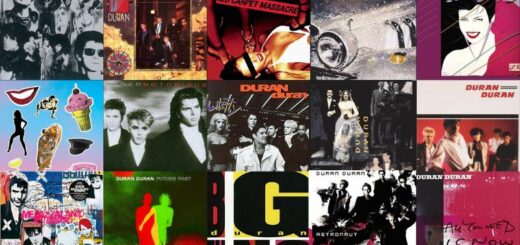The List of Yes Albums in Order of Release
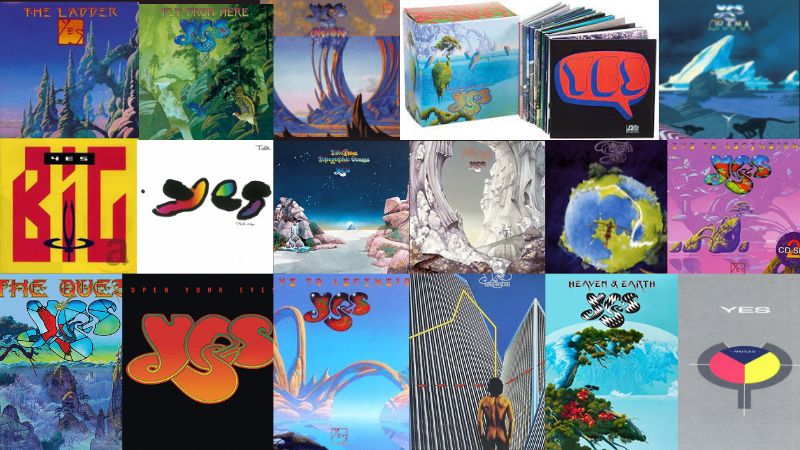
Yes Albums in Order: Spanning over five decades of musical evolution, Yes stands as a testament to the boundless innovation and enduring legacy within the progressive rock landscape.
Formed in the heart of London back in 1968, Yes emerged as a quintessential figure in the realm of progressive rock. Founded by Jon Anderson, Chris Squire, Peter Banks, Tony Kaye, and Bill Bruford, the band has charted an illustrious trajectory through the annals of music history, navigating an evolving lineup that has seen a total of 20 musicians step into its fold over the years.
Since February 2023, the band’s lineup has comprised Steve Howe, Geoff Downes, Billy Sherwood, Jon Davison, and Jay Schellen, a testament to their enduring legacy and adaptability. Throughout their storied career, Yes voyaged through various musical styles, achieving monumental success with albums like “Fragile,” “Close to the Edge,” and “90125.” Their exploration of progressive rock not only solidified their place as pioneers within the genre but also secured their position as one of the most enduring and influential bands in the history of rock music.
Recognized for their innovation and longevity, Yes has garnered numerous accolades, including Grammy Awards and a well-deserved induction into the Rock and Roll Hall of Fame in 2017, honoring the contributions of both current and former members who shaped the band’s rich and diverse musical legacy. With a discography spanning 23 studio albums and sales exceeding 30 million worldwide, Yes stands tall as an emblem of musical prowess and innovation in the world of progressive rock. So, if you are a die heart fan of Yes Albums then check out here we have list of Yes albums in order of release so far.
All Yes Albums Available on: Apple Music
How many albums does Yes have?
The discography of the English progressive rock band Yes have released 23 studio albums, 18 live albums, 15 compilation albums, 41 singles, and 23 videos.
All Yes Albums in Order: Check Out The List of Yes Albums in Order of Release Here!
Here is the list of Yes Album in Order of Release Date:
- Yes — 25 July 1969
- Time and a Word — 24 July 1970
- The Yes Album — 19 February 1971
- Fragile — 26 November 1971
- Close to the Edge — 13 September 1972
- Tales from Topographic Oceans — 7 December 1973
- Relayer — 28 November 1974
- Going for the One — 15 July 1977
- Tormato — 22 September 1978
- Drama — 18 August 1980
- 90125 — 11 November 1983
- Big Generator — 21 September 1987
- Union — 30 April 1991
- Talk — 21 March 1994
- Keys to Ascension — 28 October 1996
- Keys to Ascension 2 — 3 November 1997
- Open Your Eyes — 25 November 1997
- The Ladder — 20 September 1999
- Magnification — 10 September 2001
- Fly from Here — 22 June 2011
- Heaven & Earth — 16 July 2014
- The Quest — 1 October 2021
- Mirror to the Sky — 19 May 2023
All Yes Albums List in Order
1. Yes (1969)
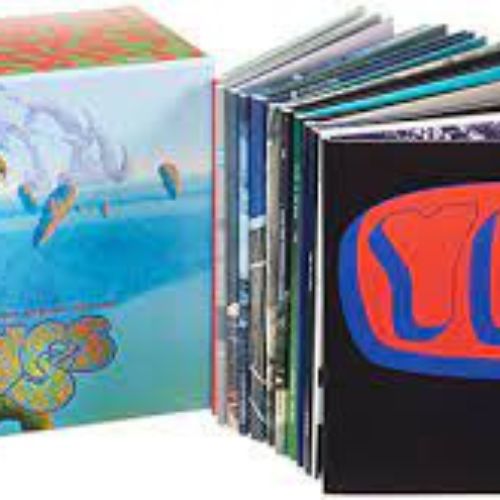
Track
- Beyond and Before
- I See You
- Yesterday and Today
- Looking Around
- Harold Land
- Every Little Thing
- Sweetness
- Survival
Yes, the inaugural studio release by English rock band Yes, debuted on July 25, 1969, via Atlantic Records. Following their 1968 formation, the band extensively toured the UK, blending original tracks and reimagined covers. Signed in March 1969, they recorded at London’s Advision and Trident Studios. The album features renditions of the Beatles’ “Every Little Thing” and the Byrds’ “I See You.” Critically acclaimed in the UK and US, Yes didn’t achieve commercial success or chart placement. It spawned two singles, “Sweetness” and “Looking Around.” Remastered in 1994 and 2003, the latter unveiled unreleased tracks, including a rendition of “Something’s Coming” from West Side Story.
2. Time and a Word (1970)
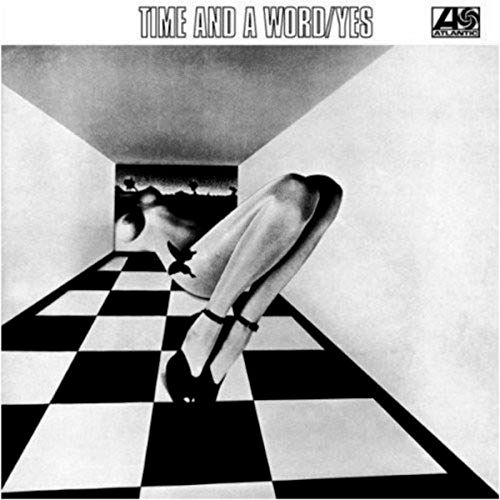
Track
- No Opportunity Necessary, No Experience Needed
- Then
- Everydays
- Sweet Dreams
- The Prophet
- Clear Days
- Astral Traveller
- Time and a Word
“Time and a Word,” Yes’s second studio album, emerged in July 1970 under Atlantic Records. Constructed amid relentless touring following their 1969 debut, the album fused original tracks with covers of pop, jazz, and folk pieces. Employing brass and string orchestration, the band ventured into new sonic territories. Internal tensions heightened as guitarist Peter Banks opposed the orchestral direction, leading to his departure before the album’s release and replacement by Steve Howe. Despite mixed reviews, the album marked Yes’s UK chart entry at number 45, though it didn’t gain traction in the US. Remastered in 2003, the reissue unveiled previously unreleased tracks, showcasing the album’s evolving essence.
3. The Yes Album (1971)
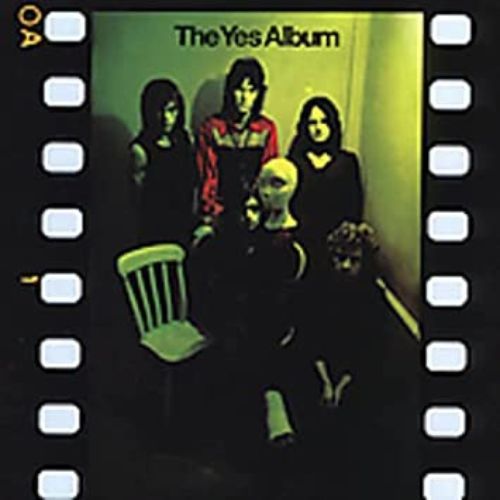
Track
- Yours Is No Disgrace
- Clap
- Starship Trooper • Life Seeker • Disillusion • Würm
- I’ve Seen All Good People • Your Move • All Good People
- A Venture
- Perpetual Change
“The Yes Album,” released in February 1971 by Atlantic Records, marked a pivotal moment for the English progressive rock band Yes. Introducing guitarist Steve Howe and bidding farewell to keyboardist Tony Kaye until their 1983 release, the album showcased the band’s evolution. Recorded at Advision Studios, London, after an intensive writing period in Devon, the album boasted original tracks spanning diverse genres from jazz to funk. Highlighting individual contributions, such as Howe’s eclectic guitar styles and the live-recorded acoustic piece “Clap,” the album soared critically and commercially. Surpassing prior sales, it achieved platinum status and cemented Yes’s position in the music industry. Remastered versions have continued its legacy, including a Steven Wilson remix in 2014.
4. Fragile (1971)
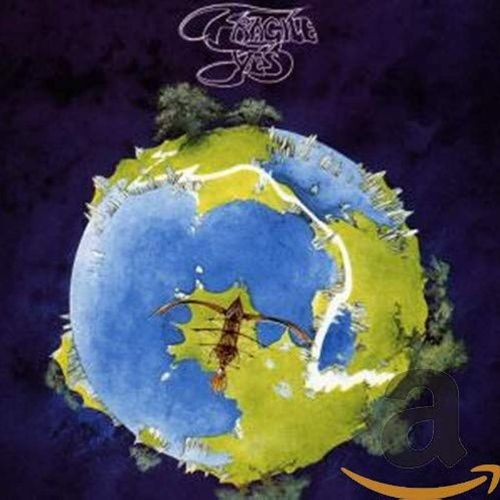
Track
- Roundabout
- Cans and Brahms
- We Have Heaven
- South Side of the Sky
- Five per Cent for Nothing
- Long Distance Runaround
- The Fish (Schindleria Praematurus)
- Mood for a Day
- Heart of the Sunrise
- We Have Heaven (Reprise)
“Fragile,” Yes’ fourth studio album, released in November 1971, marked the debut of keyboardist Rick Wakeman, replacing Tony Kaye. Wakeman’s proficiency with multiple keyboards broadened the band’s sonic palette. The album featured nine tracks, four group compositions, and five short solo pieces, including the iconic opener “Roundabout.” Designed by Roger Dean, it garnered praise for its artwork but received mixed feedback for the solo tracks. Despite this, “Fragile” soared commercially, reaching No. 4 on the US Billboard Top LPs and No. 7 on the UK Albums Chart. The accompanying tour, spanning over 100 dates, solidified Yes as headlining performers. Certified Platinum in the UK and double Platinum in the US, it remains a cornerstone of Yes’ discography.
5. Close to the Edge (1972)
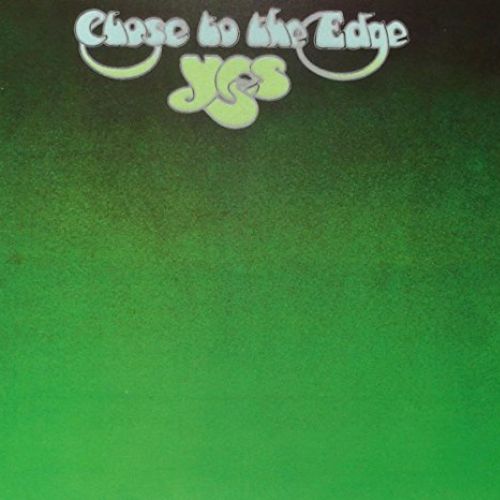
Track
- Close to the Edge • The Solid Time of Change • Total Mass Retain • I Get Up, I Get Down • Seasons of Man
- And You and I • Cord of Life • Eclipse • The Preacher, the Teacher • The Apocalypse
- Siberian Khatru
“Close to the Edge,” Yes’s fifth studio album, released in 1972 via Atlantic Records, marked a pinnacle in their 1970s catalog and the departure of drummer Bill Bruford. The 18-minute title track, inspired by Hermann Hesse’s “Siddhartha,” anchors the album, flanked by the folk-infused “And You and I” and the rock-driven “Siberian Khatru.” It soared commercially, peaking at No. 4 on the UK Albums Chart and No. 3 on the Billboard 200, their highest U.S. chart position. Bruford’s exit led to Alan White’s debut during the extensive 1972–1973 world tour. Certified platinum in 1998, the album’s enduring impact was recognized by Rolling Stone, ranking it #445 among the 500 Greatest Albums of All Time in 2020.
6. Tales from Topographic Oceans (1973)
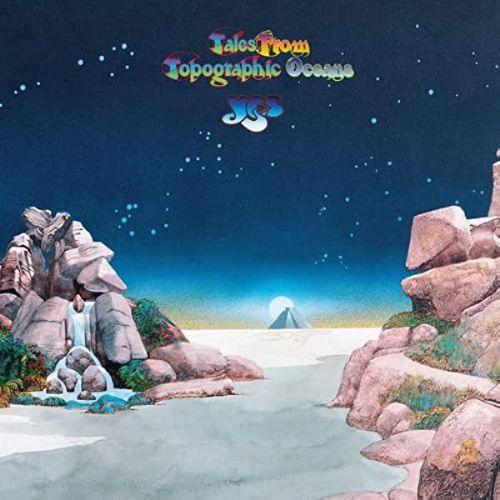
Track
- The Revealing Science of God (Dance of the Dawn)
- The Remembering (High the Memory)
- The Ancient (Giants Under the Sun)
- Ritual (Nous Sommes du Soleil)
“Tales from Topographic Oceans,” Yes’ sixth studio album, emerged on December 7, 1973, introducing drummer Alan White into the fold. Conceptualized by Jon Anderson during the Close to the Edge Tour, inspired by Hindu texts, the double album featured four side-long tracks. Rehearsed over two months in London, it was met with mixed reviews initially, symbolizing progressive rock’s perceived excesses. Despite this, it achieved commercial success, hitting number one in the UK and reaching number six in the US. The subsequent tour saw the band performing the entire album, leading to Rick Wakeman’s departure. Remastered editions in 2003 and 2016 further cemented its place in Yes’ legacy.
7. Relayer (1974)
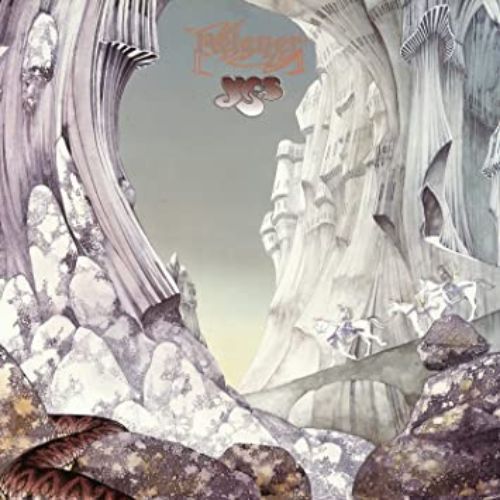
Track
- The Gates of Delirium
- Sound Chaser
- To Be Over
“Relayer,” Yes’s seventh studio album, marked a pivotal shift for the band after keyboardist Rick Wakeman’s departure in 1974. This departure led to rehearsals as a four-piece, eventually welcoming Swiss musician Patrick Moraz. Infused with Moraz’s funk and jazz fusion elements, “Relayer” features three expansive tracks, notably “The Gates of Delirium,” “Sound Chaser,” and “To Be Over.” Despite mixed critical reception, the album soared to No. 4 on the UK Albums Chart and No. 5 on the US Billboard 200. Its single “Soon” emerged from the closing segment of “The Gates of Delirium.” The album’s enduring success earned it RIAA gold certification, followed by remastered releases in 2003 and 2014, featuring unreleased tracks and enhanced sound mixes.
8. Going for the One (1977)
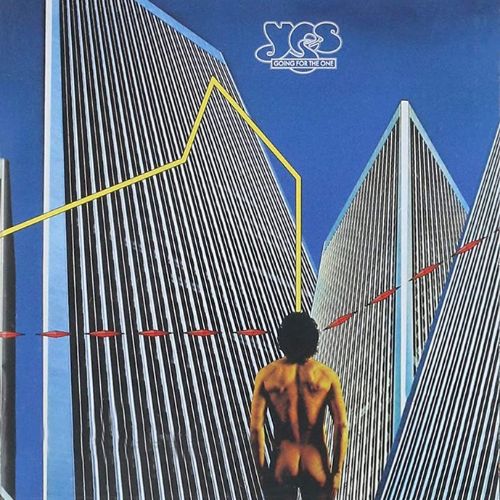
Track
- Going for the One
- Turn of the Century
- Parallels
- Wonderous Stories
- Awaken
“Going for the One,” Yes’ eighth studio album, emerged after a hiatus, showcasing a departure from their conceptual approach. Recorded in Montreux, Switzerland, following lineup changes with Rick Wakeman’s return, it marked a shift to shorter, more accessible tracks. Released in 1977, the album soared to No. 1 on the UK Albums Chart and No. 8 on the US Billboard 200. Singles like “Wonderous Stories” achieved chart success, with the former hitting No. 7 in the UK. Critically lauded for its return to accessible music, it earned gold certification in the US within a month. Yes embarked on an extensive tour supporting the album, leaving a lasting mark on their discography.
9. Tormato (1978)
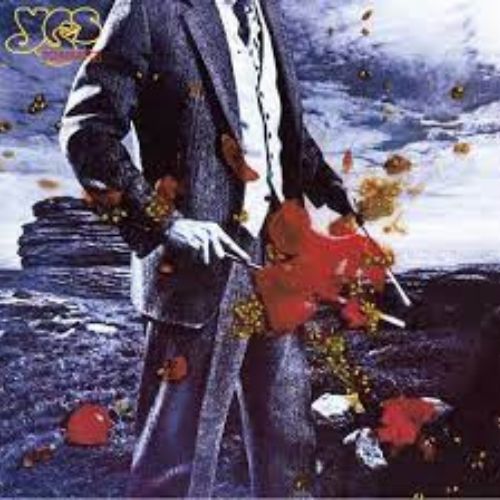
Track
- Future Times
- Don’t Kill the Whale
- Madrigal
- Release, Release
- Arriving UFO
- Circus of Heaven
- Onward
- On the Silent Wings of Freedom
“Tormato,” Yes’s ninth studio album, marked the departure of singer Jon Anderson and keyboardist Rick Wakeman from the group in 1980. Released in 1978 on Atlantic Records, it followed the success of their previous album, “Going for the One.” Despite internal conflicts affecting the album’s production, including disputes over music direction and artwork and the departure of their engineer, Eddy Offord, it became a commercial hit. The album peaked at No. 8 in the UK and No. 10 in the US, achieving platinum status within two months of release. Singles “Release, Release” and “Don’t Kill the Whale” contributed to its success, with the latter reaching No. 36 in the UK. The accompanying tour introduced concerts in the round on a revolving stage, showcasing Yes’s innovative stage presence. Remastered in 2004, “Tormato” included previously unreleased tracks from its recording sessions.
10. Drama (1980)
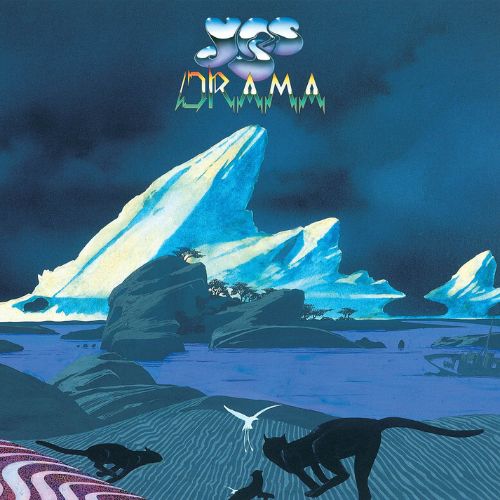
Track
- Machine Messiah
- White Car
- Does It Really Happen?
- Into the Lens
- Run Through the Light
- Tempus Fugit
“Drama,” Yes’ tenth studio album, released in August 1980 via Atlantic Records, marked a significant shift for the band. Featuring Trevor Horn on lead vocals and Geoff Downes on keyboards, it followed the departure of Jon Anderson and Rick Wakeman. Rushed for completion due to scheduled tours, the album blended Yes’ progressive roots with Horn and Downes’ new wave influences. While receiving generally positive reviews, it reached No. 2 in the UK and No. 18 in the US, breaking a gold certification streak since 1971. “Into the Lens” emerged as its sole single. The album’s release tour faced mixed reactions, leading to the band’s dissolution. Remastered in 2004, it gained a full live performance in 2016.
11. 90125 (1983)
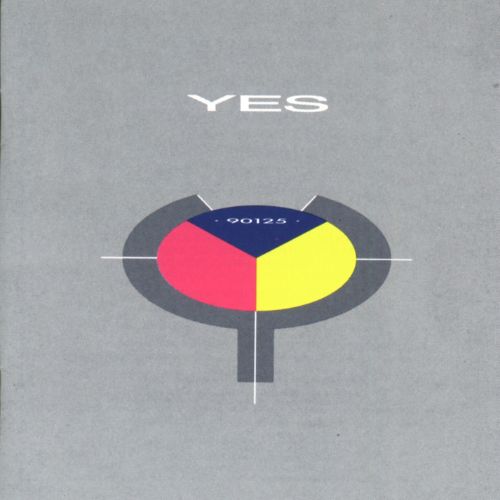
Track
- Owner of a Lonely Heart
- Hold On
- It Can Happen
- Changes
- Cinema
- Leave It
- Our Song
- City of Love
- Hearts
“90125,” Yes’ 11th studio album, emerged in November 1983, marking a pivotal shift for the band. After disbanding in 1981, members Chris Squire and Alan White, along with Trevor Rabin and Tony Kaye, formed Cinema, steering towards a more pop-oriented direction inspired by Rabin’s demos. With Trevor Horn producing, Jon Anderson rejoined during mixing, transforming Cinema into the new Yes lineup. The album, named after its Atco catalogue number, achieved acclaim, peaking at No. 5 on the US Billboard 200 and No. 16 on the UK Albums Chart. “Owner of a Lonely Heart” soared atop the Billboard Hot 100, defining their success, while “Cinema” earned a Grammy. The subsequent tour, including Rock in Rio, showcased Yes’ reinvention. Remastered in 2004, “90125” remains their top-selling album, surpassing 3 million copies in the US.
12. Big Generator (1987)
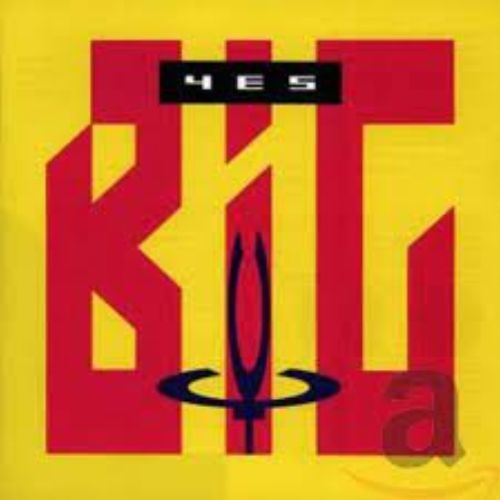
Track
- Rhythm of Love
- Big Generator
- Shoot High Aim Low
- Almost Like Love
- Love Will Find a Way
- Final Eyes
- I’m Running
- Holy Lamb (Song for Harmonic Convergence)
“Big Generator,” Yes’s twelfth studio album, debuted in 1987 following the band’s transition from progressive rock to a pop-driven sound showcased in its predecessor, “90125.” Produced by Trevor Horn, the album’s creation faced challenges leading to recording shifts from Italy to London and eventual completion in Los Angeles. Reviews varied, yet it achieved commercial success, hitting number 15 on the Billboard 200 and earning platinum status from the RIAA for a million US sales. Nominated for a Grammy, singles like “Love Will Find a Way” and “Rhythm of Love” bolstered its acclaim. The subsequent tour across North America and Japan solidified its impact before Anderson’s departure, later reissued with bonus tracks in 2009.
13. Union (1991)
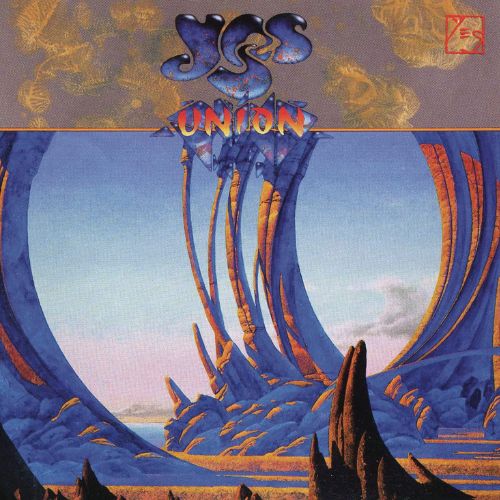
Track
- I Would Have Waited Forever
- Shock to the System
- Masquerade
- Lift Me Up
- Without Hope You Cannot Start the Day
- Saving My Heart
- Miracle of Life
- Silent Talking
- The More We Live – Let Go
- Angkor Wat
- Dangerous (Look in the Light of What You’re Searching For)
- Holding On
- Evensong
- Take the Water to the Mountain
“Union,” Yes’s 13th studio album, emerged from the fusion of two factions of the band: Anderson Bruford Wakeman Howe (ABWH) and the contemporary Yes lineup. Released in April 1991 by Arista Records, the album’s production combined unfinished tracks from both groups, although clashes among musicians and contentious recording sessions ensued. Despite critical division and disapproval from most band members, “Union” achieved commercial success, peaking at No. 7 in the UK and No. 15 in the US. The single “Lift Me Up” topped the Billboard Hot Mainstream Rock Tracks chart for six weeks. The album garnered a gold certification from RIAA within two months and received a Grammy nomination for Howe’s “Masquerade.” The subsequent tour, featuring all eight members, marked a momentous but short-lived collaboration as Bruford, Wakeman, and Howe departed afterward.
14. Talk (1994)
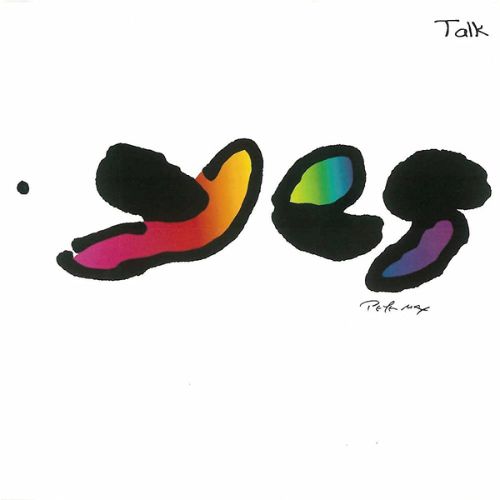
Track
- The Calling
- I Am Waiting
- Real Love
- State of Play
- Walls
- Where Will You Be
- Endless Dream: Silent Spring (Instrumental)
- Endless Dream: Talk
- Endless Dream: Endless Dream
“Talk,” Yes’ fourteenth studio album released on March 21, 1994, marked the culmination of an era, featuring guitarist Trevor Rabin and keyboardist Tony Kaye in their final studio appearance with the band. Following the Union Tour in 1992, Phil Carson, a longtime associate, urged Rabin to collaborate on a new album for Victory Music. Despite internal tensions due to past songwriting exclusions, Rabin and Anderson crafted tracks, showcasing digital recording techniques ahead of their time. However, faced with Victory Music’s bankruptcy, the album’s reception was modest, peaking at No. 20 in the UK and No. 33 in the US, despite charting singles like “The Calling” and “Walls.” The subsequent tour saw Billy Sherwood join, marking Rabin and Kaye’s departure from Yes.
15. Keys to Ascension (1996)
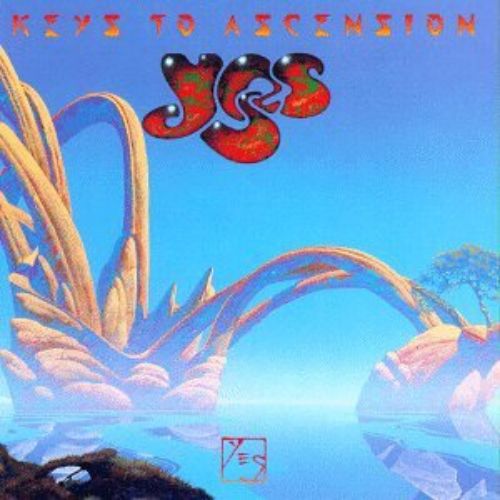
Track
- Siberian Khatru
- The Revealing Science of God (Dance of the Dawn)
- America
- Onward
- Awaken
- Roundabout
- Starship Trooper • Life Seeker • Disillusion • Würm
- Be the One • The One • Humankind • Skates
- That, That Is • Togetherness • Crossfire • The Giving Things • That Is • All in All • How Did Heaven Begin • Agree to Agree
“Keys to Ascension,” Yes’ fourth live and fifteenth studio album, debuted in October 1996 on Essential Records. This release marked the return of Steve Howe and Rick Wakeman to the lineup alongside Jon Anderson, Chris Squire, and Alan White, reuniting the band’s 1979 core. Recorded partly during three shows at the Fremont Theater in March 1996, the album includes live renditions and new studio tracks, heralding a return to Yes’ signature long-form compositions. Garnering positive reviews, it reached No. 48 on the UK Albums Chart and No. 99 on the Billboard 200. Follow-up studio recordings birthed “Keys to Ascension 2” (1997), later compiled into “Keystudio” (2001), with full album reissues in 1998 and 2010, the latter including concert footage.
16. Keys to Ascension 2 (1997)
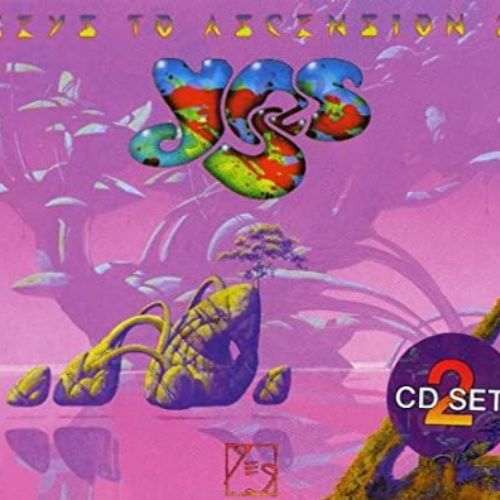
Track
- I’ve Seen All Good People • Your Move • All Good People
- Going for the One
- Time and a Word
- Close to the Edge • The Solid Time of Change • Total Mass Retain • I Get Up I Get Down • Seasons of Man
- Turn of the Century
- And You and I • Cord of Life • Eclipse • The Preacher the Teacher • Apocalypse
- Mind Drive
- Foot Prints
- Bring Me to the Power
- Children of Light • Children of Light • Lifeline
- Sign Language
“Keys to Ascension 2,” Yes’ fifth live and sixteenth studio album, marked the return of guitarist Steve Howe and keyboardist Rick Wakeman in 1995. Recorded as a double album, it emerged in November 1997 following three landmark concerts in San Luis Obispo, California. This release, complementing its precursor, showcased live performances from 1996 and introduced five new studio tracks, reinstating the band’s signature long-form compositions. Despite mixed critical reception, the album peaked at No. 62 on the UK Albums Chart and No. 169 on the Billboard 200. Subsequent reissues and compilations, including “Keystudio” (2001), immortalized the studio material, solidifying its significance in Yes’ discography.
17. Open Your Eyes (1997)
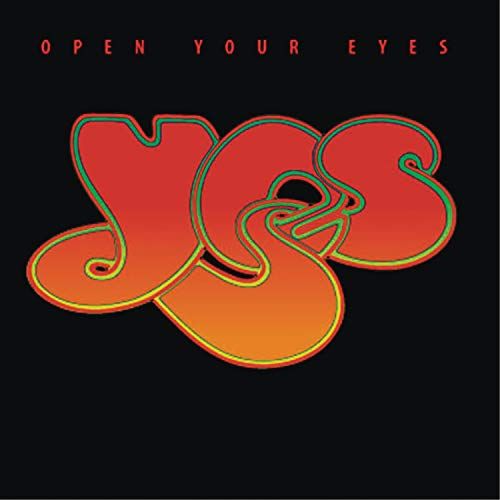
Track
- New State of Mind
- Open Your Eyes
- Universal Garden
- No Way We Can Lose
- Fortune Seller
- Man in the Moon
- Wonderlove
- From the Balcony
- Love Shine
- Somehow, Someday
- The Solution
- The Source
“Open Your Eyes,” Yes’ seventeenth studio album, arrived in November 1997 amid a tumultuous phase for the band. Emerging after the revival of the ’70s lineup, the album saw the departure of keyboardist Rick Wakeman and a fragmented band dynamic. Guitarist and producer Billy Sherwood collaborated with bassist Chris Squire, preventing a complete band split by crafting new tracks. Dominated by Squire and Sherwood’s creative direction, the involvement of Jon Anderson, Steve Howe, and Alan White came later in the process. Despite mixed reviews and modest sales, the album spawned singles like “Open Your Eyes” and “New State of Mind,” with a limited edition featuring a surround sound mix. The subsequent year-long world tour marked Yes’ thirtieth anniversary, during which Russian keyboardist Igor Khoroshev joined as a full-time member.
18. The Ladder (1999)
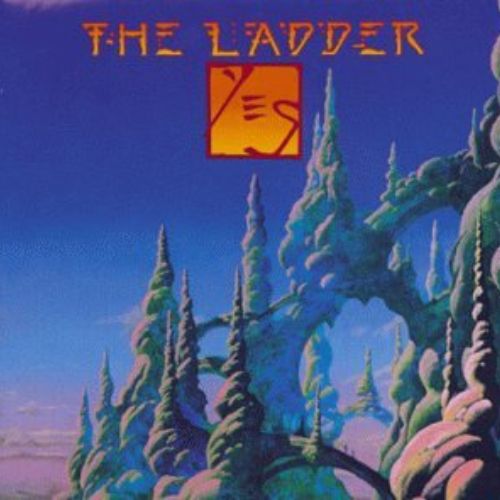
Track
- Homeworld (The Ladder)
- It Will Be a Good Day (The River)
- Lightning Strikes
- Can I?
- Face to Face
- If Only You Knew
- To Be Alive (Hep Yadda)
- Finally
- The Messenger
- New Language
- Nine Voices (Longwalker)
“The Ladder,” Yes’s eighteenth studio album, marked a unique milestone upon its September 1999 release on Eagle Records. The only album recorded with six full-time members, it featured keyboardist Igor Khoroshev and guitarist Billy Sherwood, the latter departing for 22 years thereafter. Produced at Armoury Studios in Vancouver by Bruce Fairbairn, who tragically passed during final sessions, the album showcased the band’s collective musical synergy after extensive demo production. Highlighted by diverse world instruments from Randy Raine-Reusch, the album received acclaim as a creative resurgence, peaking at No. 36 on the UK Albums Chart and No. 99 on the US Billboard 200. Notable singles included “Homeworld (The Ladder),” featured in the PC game Homeworld, and after global touring, Sherwood departed from the band.
19. Magnification (2001)
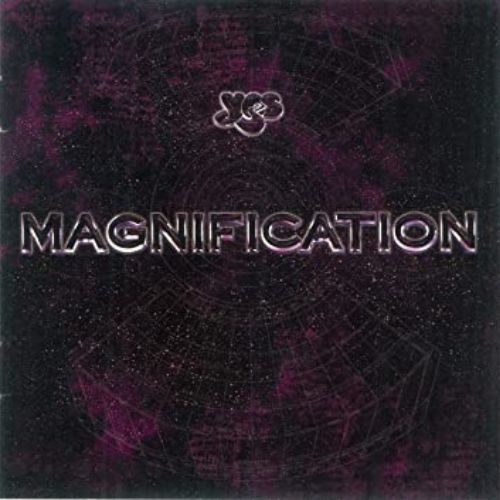
Track
- Magnification
- Spirit of Survival
- Don’t Go
- Give Love Each Day
- Can You Imagine
- We Agree
- Soft As a Dove
- Dreamtime
- In the Presence Of • Deeper • Death of Ego • True Beginner • Turn Around and Remember
- Time Is Time
“Magnification,” Yes’s nineteenth studio album, marked a unique departure as the band’s sole four-piece record, excluding a keyboardist. Released in September 2001 via Eagle Records, it served as the farewell for vocalist Jon Anderson, a founding member. Prompted by keyboardist Igor Khoroshev’s departure in 2000, the band ventured into orchestral-infused territory, reminiscent of their early work on “Time and a Word” (1970). Produced with Tim Weidner and orchestrated by Larry Groupé alongside the San Diego Symphony Orchestra, the album, recorded using Pro Tools, received mixed reviews and modest sales, peaking at UK #71 and Billboard 200 #186.
Its North American release featured CD and DVD-Audio formats, the latter boasting a 5.1 surround sound mix, while subsequent reissues included bonus discs of unreleased live tracks. The accompanying Yes Symphonic Tour showcased the band alongside keyboardist Tom Brislin and an orchestra, touring the US and Europe.
20. Fly from Here (2011)
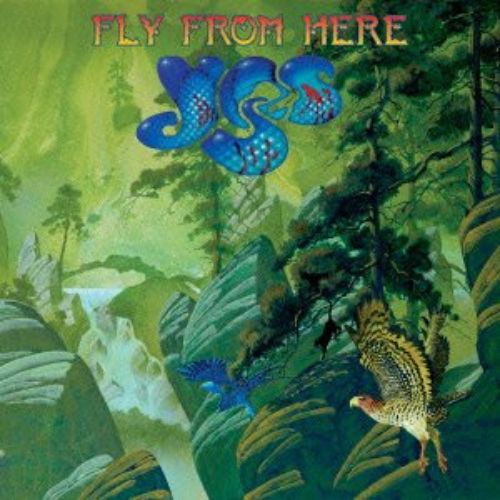
Track
- Fly from Here – Overture
- Fly from Here, Pt. I: We Can Fly
- Fly from Here, Pt. II: Sad Night at the Airfield
- Fly from Here, Pt. III: Madman at the Screens
- Fly from Here, Pt. IV: Bumpy Ride
- Fly from Here, Pt. V: We Can Fly (Reprise)
- The Man You Always Wanted Me to Be
- Life on a Film Set
- Hour of Need
- Solitaire
- Into the Storm
“Fly from Here,” Yes’ 20th studio album, marked the band’s revival in 2011 with vocalist Benoît David and keyboardist Oliver Wakeman. Released by Frontiers Records after Yes’ 2008 comeback, the album showcased a lineup featuring Chris Squire, Steve Howe, and Alan White. Producer Trevor Horn joined, reshaping the album around the 24-minute suite “Fly from Here.” Geoff Downes replaced Wakeman, altering the album’s trajectory. Critically, the album drew mixed reviews but secured spots on the UK Albums Chart and the US Billboard 200. Yes toured extensively but faced a lineup change as Jon Davison stepped in for David. A reworked edition, “Fly from Here – Return Trip,” emerged during the band’s fiftieth anniversary tour in 2018.
21. Heaven & Earth (2014)
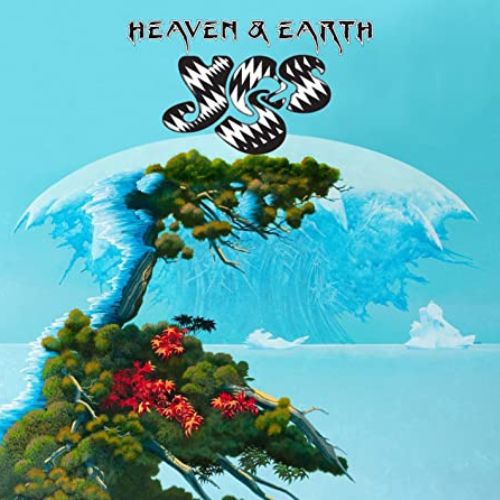
Track
- Believe Again
- The Game
- Step Beyond
- To Ascend
- In a World of Our Own
- Light of the Ages
- It Was All We Knew
- Subway Walls
“Heaven & Earth,” Yes’s twenty-first studio album, debuted on July 16, 2014, marking Jon Davison’s inaugural album as lead vocalist and the swan song for founding bassist Chris Squire, who passed away in 2015. The album’s genesis began during the 2013 leg of their Album Series Tour, with Davison actively involved in songwriting, collaborating across band members’ homes. Producer Roy Thomas Baker, known for prior work with Yes, and future bassist Billy Sherwood contributed to the album’s completion. Reception varied, garnering mixed reviews. It reached No. 20 on the UK Albums Chart and No. 26 on the US Billboard 200, becoming their highest-charting UK release since 1994’s “Talk.”
22. The Quest (2021)
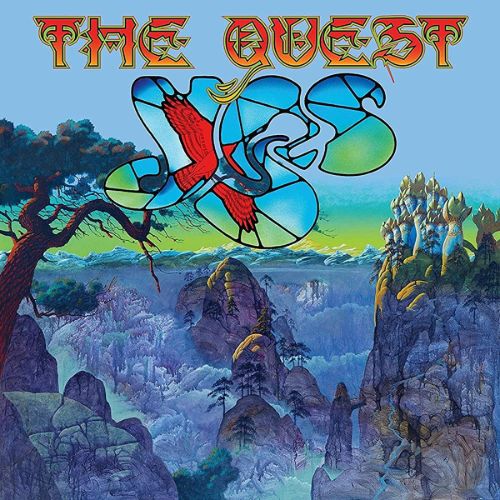
Track
- The Ice Bridge • Eyes East • Race Against Time • Interaction
- Dare to Know
- Minus the Man
- Leave Well Alone • Across the Border • Not for Nothing • Wheels
- The Western Edge
- Future Memories
- Music to My Ears
- A Living Island • Brave the Storm • Wake Up • We Will Remember
- Sister Sleeping Soul
- Mystery Tour
- Damaged World
“The Quest,” Yes’s 22nd studio album, marked several milestones for the iconic progressive rock band. Released in October 2021, it notably featured Billy Sherwood, rejoining since 1999 after Chris Squire’s passing, marking their first album without original members. Produced solely by guitarist Steve Howe, it became drummer Alan White’s final studio work before his 2022 passing. Created amidst the COVID-19 lockdown, the album’s themes—crafted mainly by Jon Davison—explore hope, optimism, and environmental concerns. Recorded in California and England, with orchestral arrangements by Paul K. Joyce, it reached No. 20 on the UK Albums Chart, receiving acclaim for Howe’s production while facing critique for song distinctiveness.
23. Mirror to the Sky(2023)
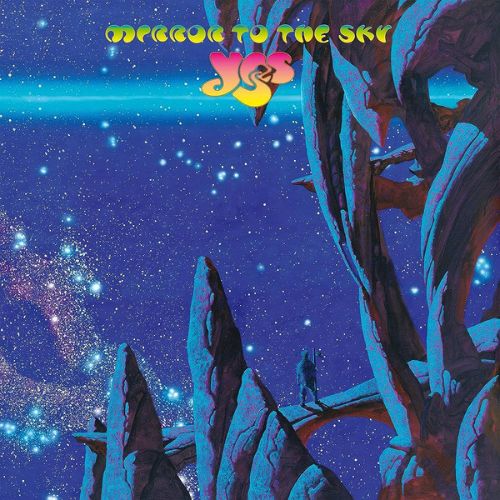
Track
- Cut from the Stars
- All Connected
- Luminosity
- Living Out Their Dream
- Mirror to the Sky
- Circles of Time
“Mirror to the Sky,” Yes’s twenty-third studio album, debuted on May 19, 2023, via InsideOut Music and Sony Music. This release marked American drummer Jay Schellen’s first full-time contribution to the band, following the passing of longtime drummer Alan White in 2022, to whom the album is dedicated. Initiated before their previous release, “The Quest,” in October 2021, the album was produced by guitarist Steve Howe. Orchestrations by Paul K. Joyce, performed by the FAMES Orchestra in North Macedonia, adorned select tracks. Available across CD, LP, Blu-ray, and digital formats, some editions featured additional artwork by iconic Yes cover artist Roger Dean.
Thanks for visit!

